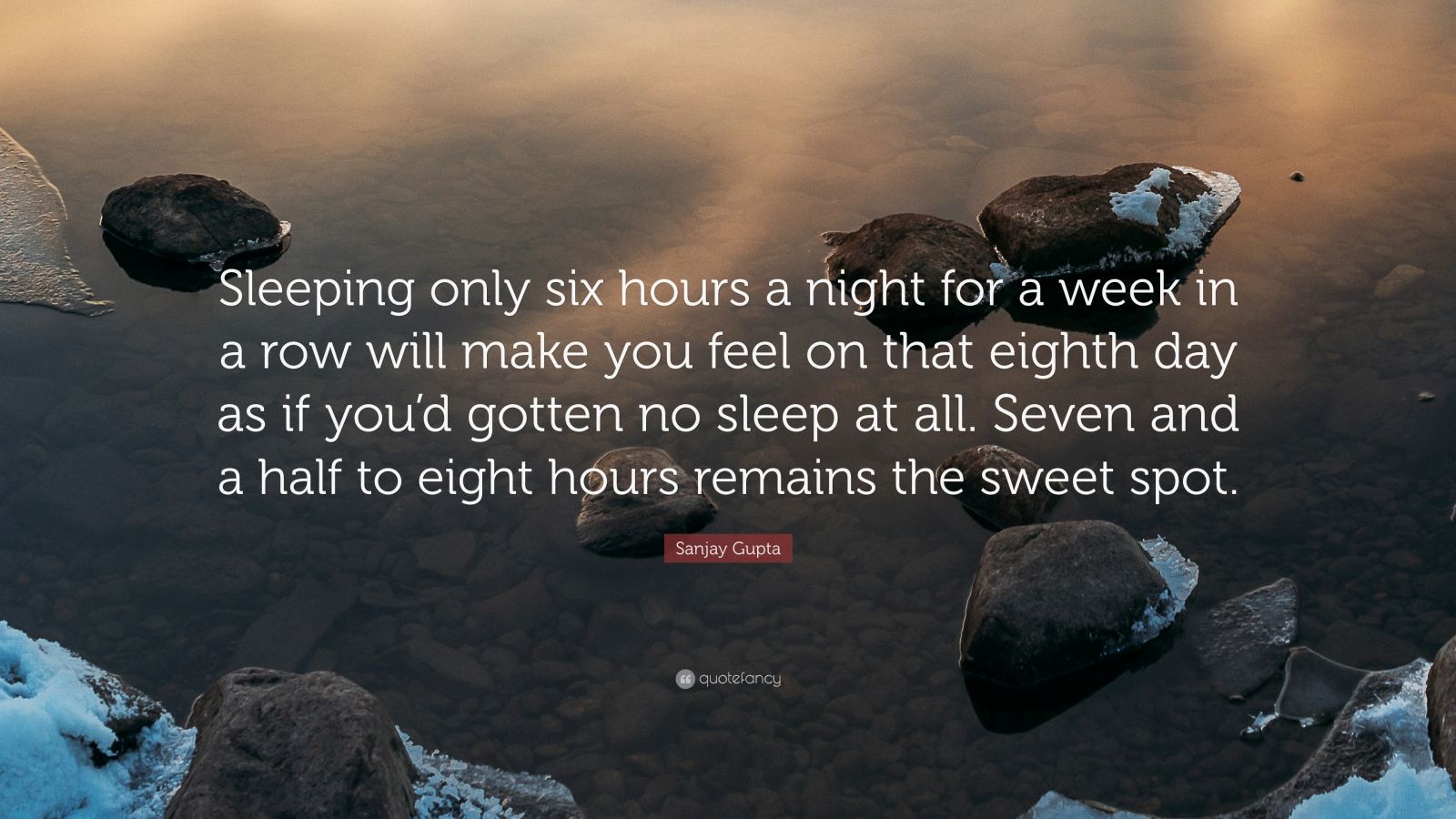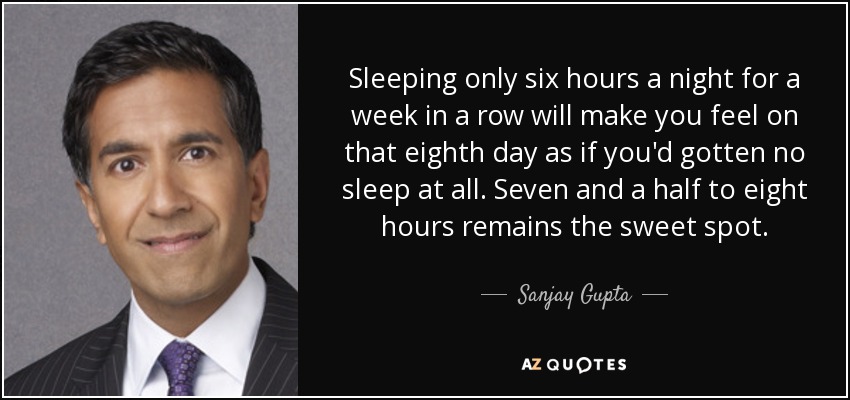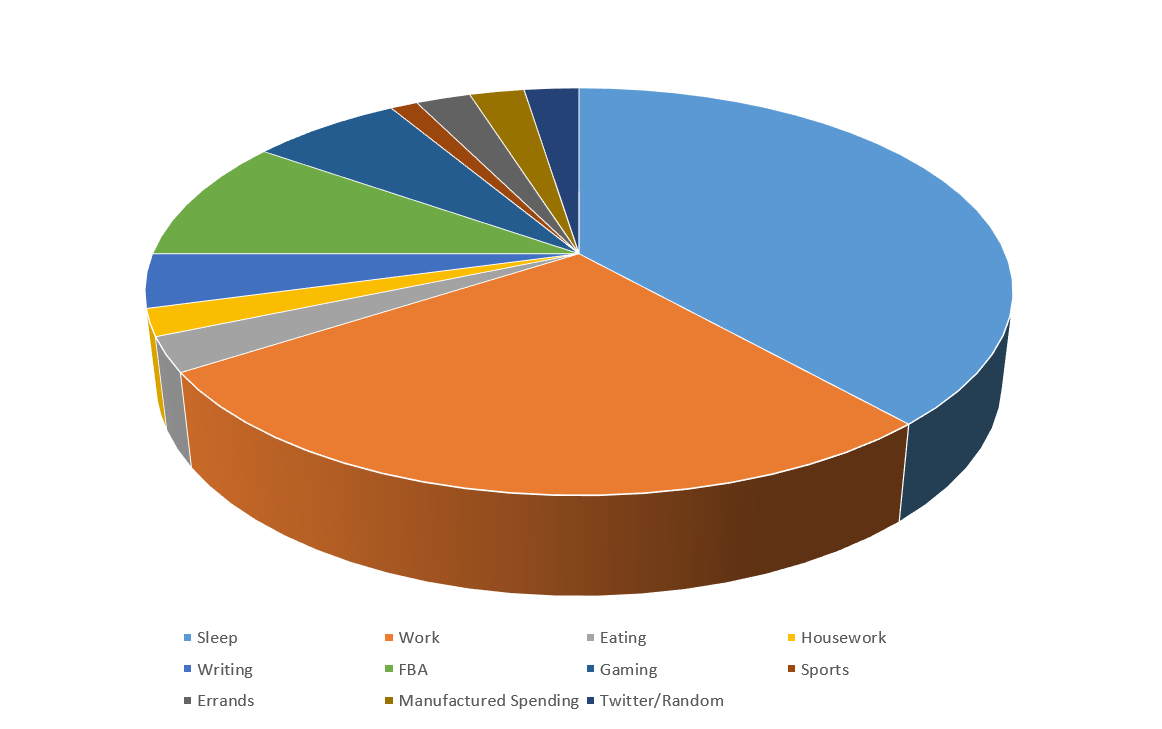Increasing work demands and lifestyle changes have resulted in adults sleeping considerably less than the seven hours per night considered to be the average sleep time necessary to sustain optimal daytime functioning . Most studies on the effects of recovery sleep after short-term sleep restriction are focused on psychomotor performance, which appears not to be fully restored by one, two, or three nights of recovery sleep . Previous sleep restriction/recovery studies that included both genders have not found significant gender differences in terms of sleep architecture or psychomotor performance responses to the insufficient sleep . However, other studies have shown that women may be more resilient to the effects of sleep loss given that one week of mild sleep restriction resulted in elevation of the proinflammatory cytokine TNFα only in men . Furthermore, women have been shown to be more resilient than men to the sleep-disturbing effects of blood drawing procedures . However, the Department recognizes that sometimes assisting the person with IADLs may benefit other household members.
Our findings are consistent with several recent experiments reporting incomplete recovery of performance deficits even after 2 or 3 nights of regular or extended sleep post mild to severe restriction of sleep . This may have important implications for people with safety-critical professions, such as health care workers, as well as transportation system employees (drivers, pilots, etc.). Live-in domestic workers who are employed by a third party must be paid at least the federal minimum wage and overtime pay for all hours worked.
I am 45 and live in Southwestern Pennsylvania. I remember the days of making a decent wage working 40 hours per week and having a CHOICE to work more hours for overtime/time and a half. I've worked 100 hour weeks and after all the taxes Pennsylvania has…which includes county taxes, city taxes, ambulance tax…yes if you work in Pennsylvania you pay 'privilege' taxes.
To top that off, these gas and oil companies now have a law working in their favor….they do NOT have to pay overtime/time and a half! It's a FEDERAL law made to suit them, certainly NOT the worker. These young people working all these hours think they are making "great money". There are more twist and turns to what these gas and oil companies are allowed to do concerning workers is unbelievable!
There USED to be a federal law saying how many hours a person could work per day….gone thanks to the gas and oil industry. As I already said, time and a half for hours worked over 40 hours…gone thanks to the gas and oil industry. Even the people making money off wells being on their property are being ripped off. The government have made 'laws' to where these gas and oil companies do NOT have to tell these people why they are now losing more and more money from the wells. The "regular rate" under the FLSA is an hourly rate of pay determined by dividing the employee's total compensation in the workweek by the total number of hours actually worked in that workweek. An employee's "regular rate" of pay is used to determine any additional overtime compensation owed if an employee works more than 40 hours in a workweek.
A. An employee who resides in the employer's home permanently or for extended periods of time need not be paid for all of the time spent at the home. When a live-in employee engages in normal personal activities such as eating, sleeping, entertaining, and other periods of complete freedom from all duties, he or she does not have to be paid for that time. For a live-in domestic service employee, such as a live-in roommate, the employer and employee may agree to not pay for time spent during bona fide meal periods, sleep periods, and off-duty time. If the meal periods, sleep time, or other periods of free time are interrupted by a call to duty, the interruption must be counted as hours worked. In these circumstances, the Department will accept any reasonable agreement of the parties taking into consideration all of the pertinent facts.
However, the employer must track and record all hours worked by domestic service employees, including live-in employees, and the employee must be paid for all hours actually worked notwithstanding the existence of an agreement. The employer may assign the employee the tasks of recording the hours worked and submitting that record to the employer. The FLSA did not initially protect workers employed directly by households in domestic service, such as cooks, housekeepers, maids, and gardeners.
Congress explicitly extended FLSA coverage to "domestic service" workers in 1974, amending the Act to apply to employees performing household services in a private home. While Congress expanded protections to "domestic service" workers, the 1974 amendments also exempted certain domestic service workers from the FLSA's minimum wage and overtime provisions. Congress also created an exemption only from the overtime pay requirement for live-in domestic service workers. Also, most people get to work early, and leave late because we are told "if you're on time, you're late" and we never want to be seen leaving right at clock out time. So in urban settings, a 40 hour work week can often mean 60 hours of your week devoted to preparing for, getting to or attending to your job. If you subtract that 60 hours devoted to your job, the 8 hours you're supposed to sleep every night , and your weekend you have 20 hours left.
2 hours to cook, clean, exercise, take kids to/from sports or lessons, catch up with your loved ones and unwind enough to recharge your mind and get a good night's sleep. No wonder people aren't sleeping, eating or exercising appropriately. Third party employers must pay home care workers for all hours those employees work. Our study aimed to assess the change in the sleep patterns during the Coronavirus lockdown in five regions (Austria/Germany, Ukraine, Greece, Cuba and Brazil), using online surveys, translated in each language.
Part of the cohort (age 25–65, well-educated) was collected directly during lockdown, to which retrospective cross-sectional data from and after lockdown questionnaires were added. I've been a bedside registered nurse for the past 13 years in critical care. It really doesn't matter what type of bedside nursing you do because they are all draining in different ways. Most nurses who are single work extra shifts in order to have something left so far as finances after living expenses. 36 hour weeks per week won't cut it, if you're not a trust fund baby. I've worked an average of 60 hours/wk most of those 13 years and can honestly say, I detest so much about so much.
Most people on this forum can not even begin to imagine the pain that bedside nurses experience regularly. I used to be so positive, beautiful, energetic and alive. I have nothing to give myself or anyone else when I am not at work. It seems every tasks outside of work takes monumental effort. I am mentally, physically, emotionally and psychologically exhausted to the degree I regular ask myself, "What are you doing with you life".
Nurses and doctors are committing suicide left and right at alarming success rate. It's just not talked about in the mainstream media. It's a forbidden topic of discussion in the medical field it seems. Hospital administrators want a HUSH culture. Medical Insurance Company CEO's are ranking in millions annually w/ ungodly bonuses while we little people slave away trying to make a difference w/ scare resources and dehumanizing conditions.
Most patient and loved ones are great people and deserve the best care. They just can not fathom the impossible level of responsibility each bedside nurse has. Many people thank nurses are witches, but they're perspective is all wrong. In almost every case, if you've ever met a nurse you were sure was a witch, you can almost be certain that that nurse has been chronically abuse, dehumanized, bullied, etc. It's easy for nurses to go numb, becoming apathetic toward everyone and everyt% hing.
Many are depressed, fatigued and feel bankrupt. It's a company within a company within a company full of shareholders whose names are not listed. The top 1% of the 1% own more than the bottom 90% as a collective in the US.
These people lack empathy and lack compassion. They are sociopaths and malignant narcissists. Even if the majority erased all of them, there will always be more sociopaths and malignant narcissists within the 90% majority to eventually destroy things all over again. Change will never happen so long as the majority remains uneducated on identifying and disarming sociopaths and narcissistic criminals. From a very young age people begin receiving an education; a process that can and will take several years.
Then they become an adult who accepts the lowest quality of life. Education is always a good thing , but there are better ways than dulling ones childhood, or requiring a majority of the time for them to wake up at 5-6 am and get out of school at 2-3 pm everyday. It is strikingly similar to a workday isn't it? At school during the industrialized version of delivering education; you are taught how to obey your authoritive figures or face consequences. You are also taught to compete with fellow peers or accept being a lesser one.
Either learning a trade going to college getting a job asap etc. Debt, bills, incidents, everything is taking your money so people pickup a second job , they work more, they get yet less sleep, and they throw out any thought that doesn't have to do with supporting themself or their loved ones. Nevermind traveling , or quality of life when you have to work insane hours. Nevermind your dignity when you let your boss walk all over you because you understand they will just replace you with ease if you don't.
Some people don't mind this because of a set mentality they were born into of "if you want something, kill yourself working for it, then never have the time to enjoy it" . Sometimes people forget that as human beings your most precious commodity is time. So instead of making the most of it you use something of a slavers argument "I work for such and such , we get this" or "I live in the u.s. I'm supporting our 13T Economy"…what does it matter? How is our 13t dollar economy treating you personally unless you are one of the very few millionares or fewer billionares who don't really need more money? Something like 90% of people are enriching people they've never met or never will.
The families receiving the money people slave away for blow their noses in it! A. No, third party employers are not entitled to claim either the companionship services or live-in domestic service employee exemptions under this Final Rule. A canonical study on the question of whether you can pay back acute sleep debt asked participants to restrict their sleep to just 4-5 hours per night for seven consecutive nights.
The study measured participants' total sleep during two "baseline" nights, seven nights of sleep restriction, and two "recovery" nights. It also measured mood states and psychomotor task performance (i.e., reaction times) each day. While participants scored significantly worse on all metrics during the sleep restriction period, their scores were able to bounce back to their baseline scores after two nights of recovery sleep. Ft. apartment in a peaceful, country setting and have more than what is an absolute necessity for life. Now if only I could find a way to enjoy my home for more than sleeping and 2 additional hours of my day. Working an average of 60 hours a week leaves me with little time for much of anything beyond work.
There is little time to spend with my husband, friends, or family, on my hobbies, or even getting my laundry done at some points. I can't even imagine raising a family with this kind of work schedule. I feel exhausted and stressed out because of the pace of my job. Even when I'm not working, my brain is still on-the-job. How can this be considered an enjoyable lifestyle?
Now to top it all off, I am a teacher, which means that I actually get a bit of reprieve from this workload and work less hours during the summer months. I can't imagine working 60+ hours a week every single week of the year. In terms of sleep stages, subjects demonstrated increased slow-wave sleep percentage (%SWS) and spent less time in stage 1 sleep . These changes were reversed during recovery sleep.
One workweek of mild sleep restriction adversely impacts sleepiness, performance, and proinflammatory cytokines. Many individuals try to overcome these adverse effects by extending their sleep on weekends. Twenty-four-hour profiles of circulating IL-6 and cortisol, objective and subjective daytime sleepiness , and performance were assessed on days 4 , 10 , and 13 . Serial 24-h IL-6 plasma levels increased significantly during sleep restriction and returned to baseline after recovery sleep.
Serial 24-h cortisol levels during restriction did not change compared with baseline, but after recovery they were significantly lower. Subjective and objective sleepiness increased significantly after restriction and returned to baseline after recovery. In contrast, performance deteriorated significantly after restriction and did not improve after recovery. Extended recovery sleep over the weekend reverses the impact of one work week of mild sleep restriction on daytime sleepiness, fatigue, and IL-6 levels, reduces cortisol levels, but does not correct performance deficits. The long-term effects of a repeated sleep restriction/sleep recovery weekly cycle in humans remain unknown. We have used a model of decision making under scarcity to analyse choices of hours of work, and understand why working hours have fallen over the last century.
People's preferences with respect to goods and free time are described by indifference curves, and their production function determines their feasible set. The choice that maximizes utility is a point on the feasible frontier where the marginal rate of substitution between goods and free time is equal to the marginal rate of transformation . A. No "Companionship services" does not include the performance of medically related services for the person. During SR, subjects were asked to spend 5-6 hrs/night in bed attempting to sleep, whereas during WR subjects were asked to spend 8-9 hrs/night in bed attempting to sleep. Naps were discouraged but did not disqualify a subject. However, naps would contribute to one's average daily sleep quantity and increase the likelihood of being deemed noncompliant .
We highlight in the Discussion section the risk management measures we put in place due to the sleepiness anticipated from the circadian mismatch and SR components of the protocol. Actigraphy has been established as a reliable and valid method for the naturalistic study of sleep levels in healthy normal sleeping adults (see for a survey discussing validity and limitations of actigraphy). The order of the experimental treatment weeks was randomly assigned to each cohort of subjects and counterbalanced across cohorts.
She would be owed 10 hours of overtime compensation (50 non-excludable hours minus 40 hours for which no overtime must be paid). Because her regular rate of pay for FLSA hours worked is $12, her overtime compensation due is $60 ($12 x .5 x 10). The $320 she receives for the 32 overnight hours may not be counted toward the $60 obligation, so she should receive $980 ($600 regular pay for daytime hours + $60 overtime compensation + $320 pay for sleep time ) each week. For example, Sue, a direct care worker employed solely by Ms. Jones, regularly works 35 hours per week in Ms. Jones' home. Sue primarily provides fellowship and protection to Ms. Jones. People exaggerate the number of hours they work, both because it legitimately feels that hard to them, and also to show everyone else that they are working harder.
But I will also say that sometimes even 20 minutes matters a lot. Recently the ACGME increased our residency work hours, such that we are now only required to have 8 hours between shifts instead of 10. I was told recently that this hasn't resulted in an "important" reduction in time off between shifts. I can tell you, however, with absolute certainty, that I can feel the difference between 7 hours of sleep and 6 hours and 40 minutes. Additionally, we're talking 20 minutes on average, every single day, which starts to add up.
An awful lot of people say things like, "But it's only 5 minutes! But those small numbers add up quickly, and all of them do matter. I live in Ireland, annual leave is 20 working days per year and 9 public holidays. Employers are always finding new and innovative ways to get around employment rights for employees. Only for EU directives we would be on a lot less annual leave and fewer employment rights.
If anything we follow the American model more than the rest of Europe model. Some industries – law, tech etc pay ok but people don't get their full annual leave and if it's not used by the deadline, they lose it. Employees in the pharma industries are contracted to work 11 month but their contracts are renewed or not before the full 12 months so the employers can avoid employment rights. The pilots who work for Ryanair are better paid than their counterparts but are self employed, they have to set themselves up as companies and get paid through a recruitment company to work for themselves.





























No comments:
Post a Comment
Note: Only a member of this blog may post a comment.